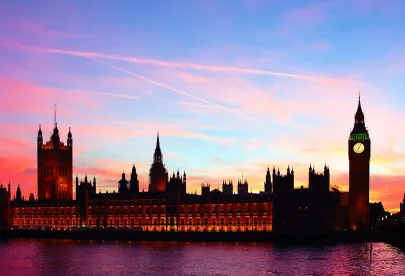Back in 2015 we reported on the Employment Appeal Tribunal’s decision in Chestertons, a ruling which struck fear into the hearts of employers everywhere by the ease with which it suggested that employees could bring their personal complaints into the whistleblowing arena just by referring to other people who might be similarly affected.
In brief, the employee Mr Nurmohamed had alleged that he and about 100 other Chestertons managers had been cheated out of part of their bonuses by deliberate manipulation of Branch profits by his employer. It was his view also that this manipulation gave an artificial value to Chestertons shares and so prejudiced the interests of actual or potential shareholders. However, that was to some extent a side-show to the main question – could referring to other employees in one’s disclosure turn what was otherwise a personal contract dispute into something which could reasonably be believed (as the law requires) to be in the public interest?
You can find in any tabloid gossip column ample evidence that what the public is interested in is by no means the same as what is in its interests. Where does that line lie? Last month a veritable armada of QCs and other counsel sailed into battle on the point in the Court of Appeal. At one end of the argument was the view that anything which affected anyone besides the employee doing the complaining was enough to tick the “public” box. At the other was the proposition that regardless of how many other employees of the same company were concerned, the wrongdoing disclosed had to relate to something beyond what was essentially a gripe about an alleged breach of an individual contract of employment, but just multiplied many times.
The Court of Appeal rejected both options. Although they would bring certainty where currently there is little, they could also bring injustice and perversity when applied to real-world facts. Instead the Court went back to a blank sheet of paper and the basic question of when it would be reasonable for an employee to believe a particular disclosure to be made in the public interest. If not numbers or subject matter alone, what factors would go into that assessment? Beginning with a little expectation management (“The statutory criterion of what is in the public interest does not lend itself to absolute rules, still less when the decisive question is not what is in fact in the public interest but what could reasonably be believed to be”), the Judge included in that list:
- The numbers in the group whose interests the disclosure served. Even a dispute about alleged breach of one’s contract of employment could make the grade if enough others were similarly involved. The Court referred to the theoretical example of pay irregularities affecting the one million employees of the NHS, or similarly significant numbers at the Royal Mail or John Lewis. That does raise the question of whether this decision will help the Claimant in Wincanton (see link above), whose little issue with overtime allocation affected just him and three of his colleagues.
- The nature of the interests affected and how seriously they are or might be affected – “a disclosure of wrongdoing directly affecting a very important interest is more likely to be in the public interest [or rather, more easily and reasonably believed to be so] than a disclosure of trivial wrongdoing affecting the same number of people”.
- The nature of the wrongdoing disclosed and in particular whether it is said to be deliberate or inadvertent.
- The identity of the alleged wrongdoer, so that the larger or more prominent the wrongdoer in terms of the size of its “relevant community”, (i.e. staff, supplier and client numbers), the more obviously a disclosure about its activities should engage the public interest. That does tend to suggest that disclosure of corporate wrongdoing may less reasonably be believed to be in the public interest where the company is small and/or has little public profile, but I think that would be at best a last-ditch assertion for an employer all out of other defences.
Applying these principles to the facts of the case, the Judge noted that Mr Nurmohamed believed:
- the sums mis-recorded in Chestertons’ accounts to be some £2.3m, even though “it is not wholly clear what the figure …..represents”;
- about 100 others to be also affected; and
- the alleged manipulation to be deliberate.
- It was also relevant that Chestertons was a well-known national estate agent and that although the profit manipulation was in internal rather than statutory accounts, the one fed into the other.
Lessons for employers
- The problem with an employer taking a view of what its employee can reasonably believe is that it only finds out in the Employment Tribunal later on whether it made the right call.
- In addition, absent clear evidence of falsehood in the disclosure, the ET will generally side with the employee in what he might reasonably believe, particularly bearing in mind that most laws are there to protect the public from something, even if it is only each other.
- Therefore it is much better as always that your defence against a whistleblowing claim is that you can show the reason for your action complained of is not retaliation but something quite unrelated to the disclosure.
- And for your Finance team, “If the account in question were the statutory accounts, even of a private company, the disclosure of such a mis-statement would unquestionably be in the public interest”.




 />i
/>i

